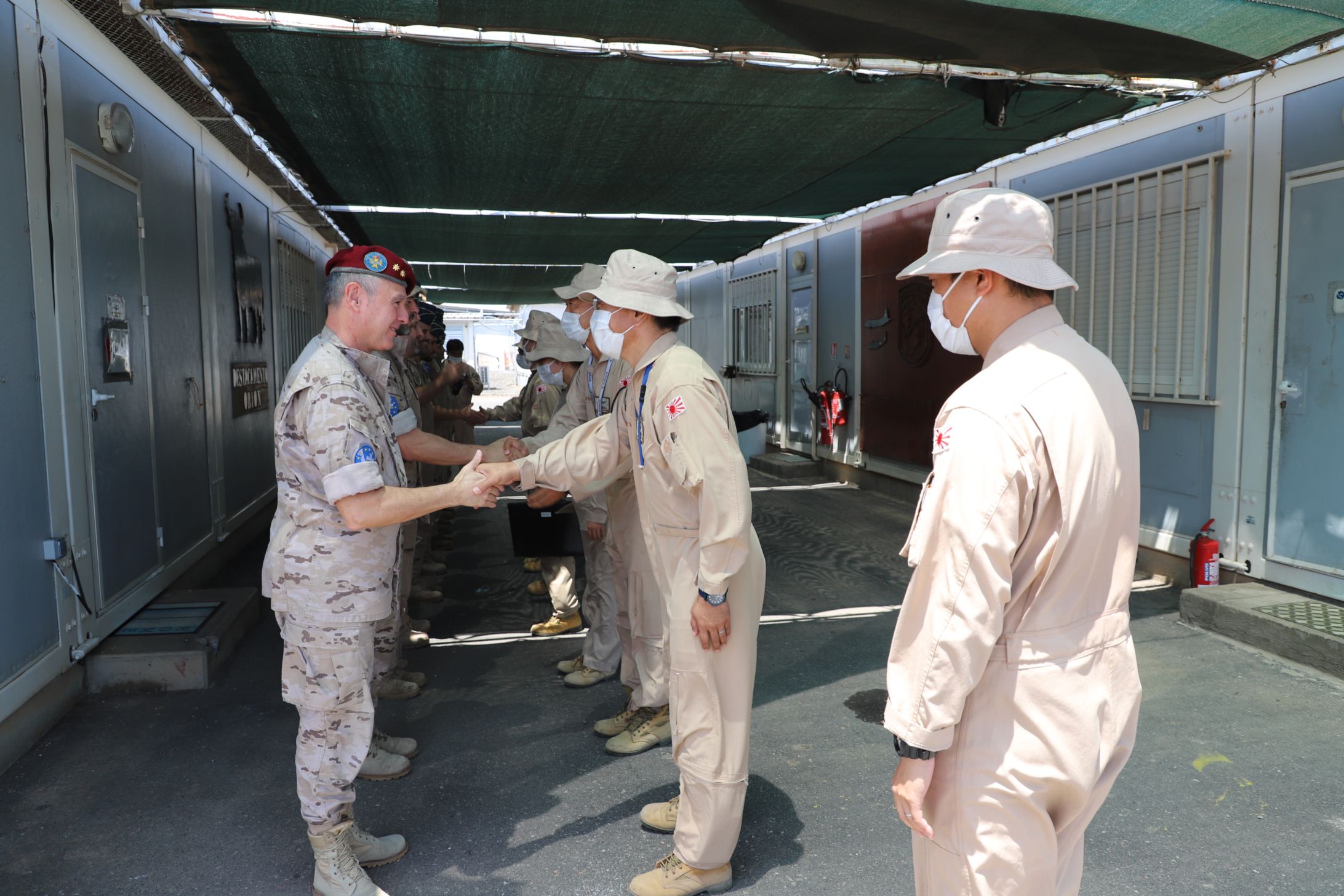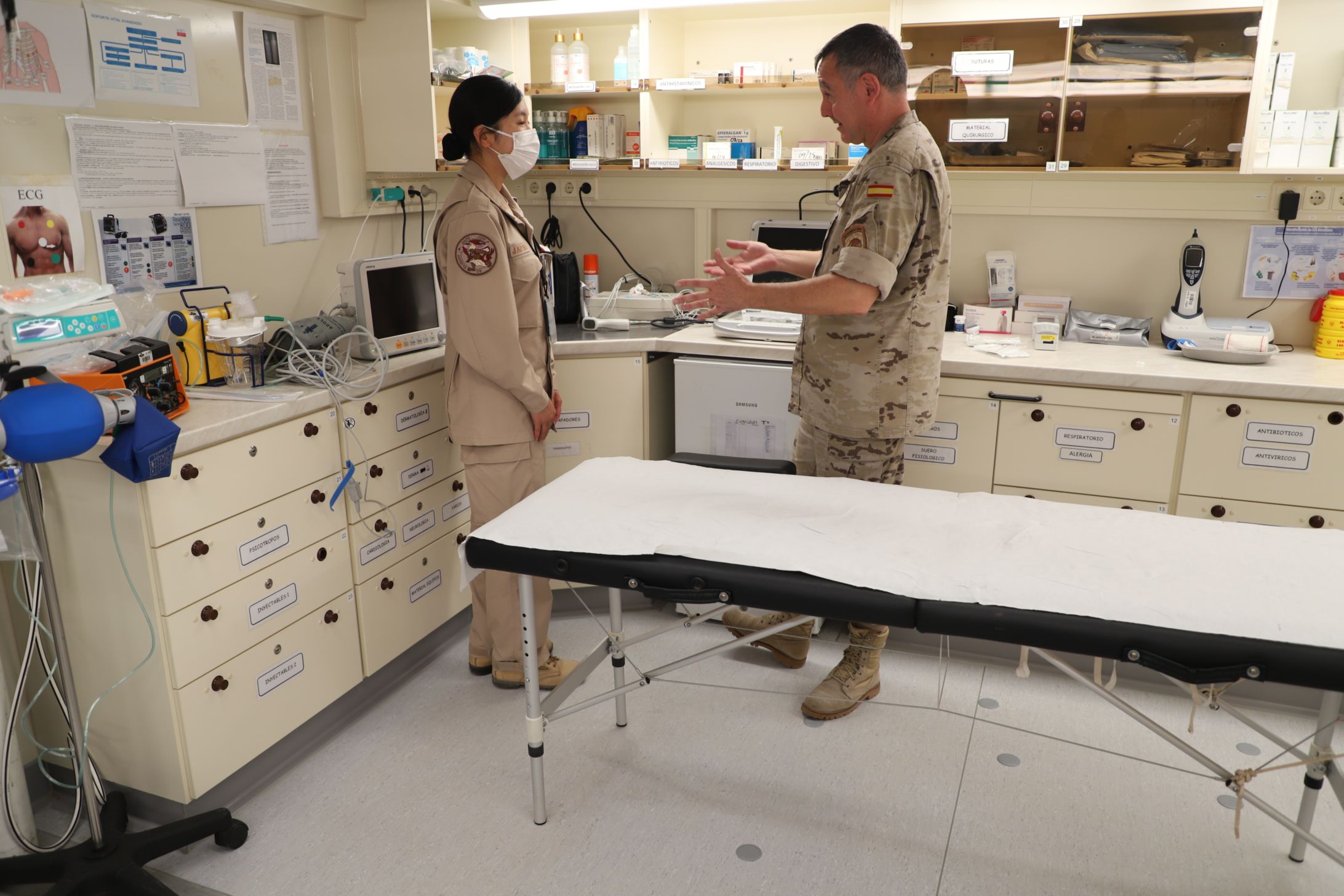
Coordination meeting between crews of the P3 of the Japanese Self-Defence Forces and the D4 VIGMA of the Orion Detachment
April 11, 2023- A crew from the Japanese P3 aircraft has visited the Spanish detachment to coordinate operations in the area
Following the Spanish Force Commander's introductory visit to the Japanese base in Djibouti, it was agreed between the two commanders that the crews of the Japanese P3 and the Spanish D4 VIGMA would meet to coordinate operational and flight safety aspects, as both share areas of operation.
The fact that both aircraft are based at the same airport means that they can overlap in air during flight. From the point of view of flight safety, the purpose of which is to identify risk factors and create softening measures to eliminate or to reduce them, close coordination between aircraft is essential.
Both crews briefed their counterparts on their capabilities, the systems they carry and their modes of operation in the area, allowing the crews of both platforms to "what to expect" from their reactions, so that they can be predictive and act accordingly.
In addition to the Japanese crew, there was an exchange between the Spanish ROLE1 medical personnel and the Japanese contingent's doctor.
The experience was very positive and productive for both parties, benefiting flight safety and an effective and efficient development of the operations of both detachments.
Operation Atalanta, under the flag of the European Union, is part of Spain's commitment to maintaining maritime security off the coasts of Somalia and neighbouring countries in the Indian Ocean region.
The increase in piracy in the Indian Ocean since 2005 led the UN Security Council to adopt a series of Resolutions to protect maritime traffic in the area. To support these provisions, the Council of the European Union approved, on November 10th 2008, the creation of a naval air force. This was the first EU maritime operation to be conducted in the framework of the CSDP. Shortly afterwards, this operation was launched.
Spain's commitment from the start of the operation has been total, materialising in maritime surveillance missions with the aim of preventing and intervening to put an end to acts of piracy and collaborating in the surveillance of illegal activities off the coast of Somalia.
Subsequently, and since the entry into force of Decision (CFSP) 2020/2018, which extends the mandate of Operation Atalanta, the missions entrusted have been expanded to include the surveillance of illegal, unreported and unregulated fishing and the trafficking of drugs, arms and charcoal, which reinforces Atalanta's role as a factor of maritime security in the area, being key to success in the fight against piracy and the protection of World Food Programme (WFP) vessels and other vulnerable vessels.
The new EU mandate extends the area of operation to the Red Sea and also includes the fight against illegal trafficking and cooperation with other operations.
Spain's permanent contribution consists of the following assets:
- DAT Orion of the Air and Space Army, equipped with a D-4 VIGMA maritime patrol and reconnaissance aircraft (MPA version of the CN-235 aircraft) deployed in Djibouti, and which has 49 military personnel.
- Navy ships, which have an embarked air unit and operational marine infantry security teams.
- In March 2019, Spain assumed leadership of 'Operation Atalanta' from the Spanish Headquarters (ES-OHQ) in Rota.
Fotos



